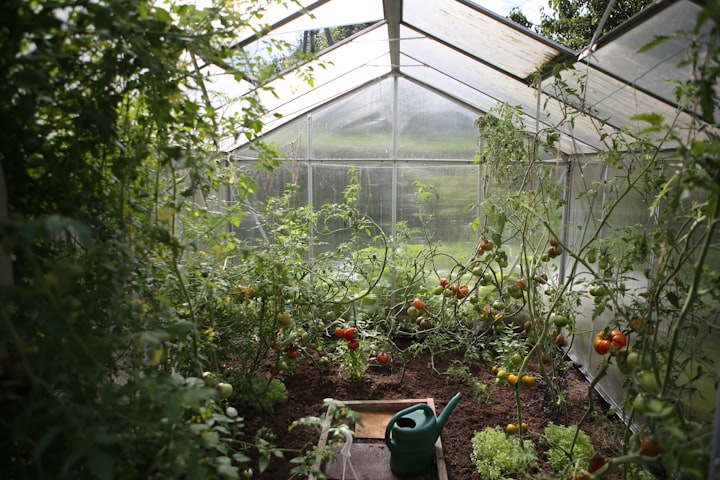The Green Revolution: Cultivating Paradise in Your Own Garden"
Unleashing the Power of Gardening for a Sustainable and Vibrant Future

Tit
Subtitle
Gardening has evolved from a simple hobby to a transformative movement that holds the key to a sustainable and vibrant future. This powerful topic explores the profound impact of gardening on individuals, communities, and the environment. It delves into the myriad benefits of gardening, from fostering a deeper connection with nature to promoting self-sufficiency and biodiversity. Discover how gardening is revolutionizing our lives and shaping a greener, more sustainable world.
Introduction:
In a world dominated by concrete jungles and technology, the resurgence of gardening represents a powerful movement towards reconnecting with nature and cultivating a sustainable future. The act of tending to plants and nurturing life has profound effects on individuals, communities, and the environment at large. As we delve into the wonders of gardening, we uncover its transformative potential, from providing a source of solace and tranquility to fostering biodiversity and promoting self-sufficiency. Join us on this journey through the green revolution, as we explore the boundless power of gardening in shaping a greener, more sustainable world.
1. Healing the Mind and Nurturing the Soul:
Gardening offers a sanctuary for the weary mind, a space where stress dissipates and tranquility prevails. The act of tending to plants, feeling the soil between our fingers, and witnessing the growth and blossoming of life can be immensely therapeutic. Studies have shown that gardening reduces stress, improves mental well-being, and promotes mindfulness. The harmonious interplay between humans and nature cultivates a sense of peace, fostering a deep connection with the natural world.
2. Fostering Sustainable Practices:
Gardening empowers individuals to embrace sustainable practices and reduce their environmental footprint. By growing our own food, we lessen our reliance on industrial agriculture, which often contributes to deforestation, soil erosion, and water pollution. Organic gardening techniques, such as composting, companion planting, and water conservation, not only support healthier plants but also contribute to a more sustainable ecosystem. Through gardening, we become stewards of the earth, actively participating in the preservation of our planet.
3. Cultivating Biodiversity and Protecting Pollinators:
Gardens act as havens for biodiversity, providing habitats for a diverse array of plant and animal species. By selecting a variety of native plants, we can attract pollinators like bees, butterflies, and birds, crucial for the reproduction of plants and the overall health of our ecosystems. Through our gardens, we contribute to the preservation of endangered species and help restore the balance of nature.
4. Nourishing the Body with Homegrown Food:
There is an indescribable joy in growing and harvesting our own food. Gardening allows us to reconnect with the origins of our sustenance, fostering a deeper appreciation for the nourishment that the earth provides. Homegrown fruits, vegetables, and herbs offer unparalleled flavor, freshness, and nutritional value. Moreover, cultivating our own food empowers us to make conscious choices about what we put on our plates, promoting a healthier lifestyle and reducing our reliance on mass-produced, heavily processed foods.
5. Building Stronger Communities:
Gardening has the remarkable ability to bring people together, fostering a sense of community and collaboration. Community gardens and urban greening initiatives create spaces where individuals from diverse backgrounds can come together to learn, share, and connect. These shared gardens promote social interaction, cultural exchange, and the sharing of knowledge, enhancing community resilience and creating a sense of belonging.
6. Educating Future Generations:
Gardening provides a hands-on learning experience, making it an ideal tool for educating children about the natural world, sustainable practices, and the importance of environmental stewardship. School gardens and educational programs instill a sense of wonder and curiosity in young minds, sparking a lifelong appreciation for nature and encouraging responsible ecological practices. By nurturing a generation of environmentally conscious individuals, gardening equips us to tackle future environmental challenges.
7. Mitigating Climate Change:
As we face the realities of climate change, gardening emerges as a powerful tool in mitigating its effects. Trees and plants act as natural air purifiers, absorbing carbon dioxide and releasing oxygen. By incorporating trees and green spaces into our gardens and urban landscapes, we can contribute to reducing greenhouse gas emissions and combat. we can contribute to reducing greenhouse gas emissions and combatting the urban heat island effect. Gardens also help to conserve water and reduce the risk of flooding by promoting soil absorption.
Conclusion:
Gardening transcends the boundaries of a mere pastime, transforming into a catalyst for change and a pathway to a greener, more sustainable future. The power of gardening lies in its ability to heal the mind, nurture the soul, foster biodiversity, nourish our bodies, build communities, educate future generations, and mitigate climate change. As we embrace the green revolution, let us recognize the immense potential of gardening to shape a world where nature thrives, communities flourish, and our connection with the earth is restored. So grab a shovel, sow the seeds of change, and join the ever-growing community of gardeners who are cultivating paradise in their own backyards.
Send
esearchrevie





Comments
There are no comments for this story
Be the first to respond and start the conversation.